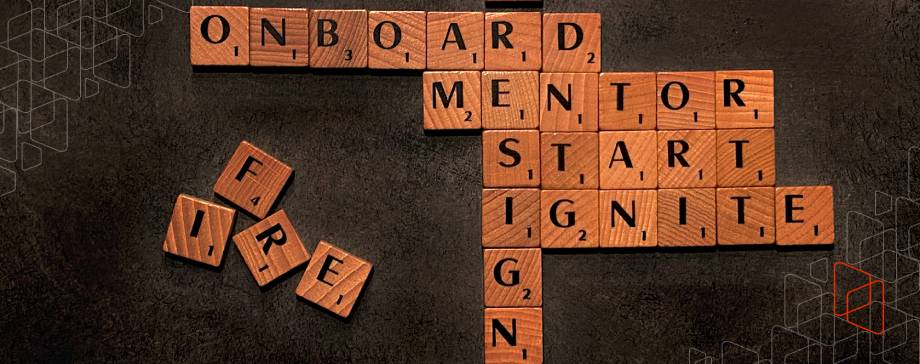Michelle Sheridan
As a versatile project manager and HR content writer, Michelle develops successful organizational development programs and shares insights with the world at large to facilitate healthy workplace cultures of diversity, inclusivity, and advancement. She has written about manager development, remote work, project & time management, employee well-being, and other relevant topics to help people excel in the modern workplace.
Pub: February 4 2021
Upd: November 14 2022
Building a strong relationship with your boss is a crucial factor in your career success and overall happiness at work. It’s more than just managing up - developing good communication skills and a relationship allows you and your boss to establish a genuine rapport that helps you both identify each other’s needs while supporting your development.
Your manager is a critical resource in growing your career, so while you should definitely be focused on making them happy and look good, it’s also essential to develop that authenticity that will allow them to know how to best help you as you grow.
When developing authentic communication with your boss, the foundations of managing up are all still there: taking responsibility, adapting, and prioritizing work based on their feedback. Relationships are a push and pull - they require giving as much as taking, it has to be a mutual understanding. In the workplace, we might feel more inclined to give, but don’t forget that you can also take from your manager - namely, advice and experiences to help determine your next step and how to get there.
It might feel a little intimidating when you decide to start communicating authentically and cultivating a more authentic relationship with your leader. Authenticity requires honesty and bringing all of yourself to work. It’s also a significant factor in increasing your engagement at work - this study found that the more authentic you feel at work, the higher your performance and engagement are likely to be.
When having honest and authentic communication at work, you don’t need to dive right into the deep end. Start small by sharing some more information in your weekly or bi-weekly 1-on-1s since they’re already a dedicated space to talk with your manager and develop effective communication.
We’ve compiled a list of topics for you to communicate authentically and start having honest and authentic conversations with your manager.
1. Tasks That Energize You and Those That Don’t
Are you energized by the type of work you’re doing? Or does your day seem to drag on endlessly while you wait for the clock to hit five so that you can close your laptop? Energizing tasks capitalize on your interest and engagement while giving you more mental and physical strength to complete tasks. Everybody’s definition of what energizes them is different, so it's essential to take notice of your day-to-day work to get a better sense of where your inspiration comes from.
Once you have a better idea of what kind of work brings you joy, communicate authentically and bring this up to your manager in your next meeting. Something as simple as “I really loved working on that quarterly analysis. I was so engrossed in it that I dedicated extra time to dig into those additional insights to give the CMO some additional context in the meeting” helps your manager realize what types of work ignite that spark.
At the same time, it's important to realize the types of tasks that drain your energy. While it's unlikely that those tasks will be transferred to another team member (after all, we do still have to work), it’s equally important for your manager to have insight into the types of projects that are not as engaging. While you’ll still have to complete them, your manager might be more willing to offer additional resources and support for those projects that are more draining.
2. Your Strengths and Areas of Development
Your strengths at work are directly related to tasks that energize you and bring meaning to your day-to-day work life. Strengths are usually areas that you’ve cultivated expertise in, and so by nature, they would energize you more than a regular task. Studies show that when a team’s strengths are intentionally designed into the culture, employee performance increases by up to 38%. This means that it definitely benefits your boss to know your strengths and how to use them best.
One way to approach this conversation is to document what you perceive to be your strengths and bring them to your manager to discuss. You can ask for feedback to see if they agree with you or look for upcoming projects to flex your skillset. You can also suggest that your team complete the StrengthsFinder test so that you all have a better idea of how to utilize each other’s strengths and function more effectively as a group.
It’s just as important to hone in on areas of development. We all know to a certain extent where our weaker spots are and how we need to improve. By saying to your manager, “I’ve been working on my communication skills (or any other skill), skill, but I’d love your feedback on how you think it’s going and what I can do to develop even further” you’re opening the door to more honest conversations about development. Listen carefully to their comments and don’t be afraid of negative responses, each step you take will help you develop your communication skills. This kind of authenticity can only help you as you continue to learn and grow throughout your career.
3. Your Dream Job
What does your dream job look like - both inside and outside of the company? Have you identified any roles that seem interesting or that you’d like to learn more about? It’s important to look at the big picture when planning your own career. Your manager is in a place to help you achieve those goals by supporting your development and helping you to network.
It might be intimidating to have authentic communication about career goals with your manager, especially if your goals happen to lie outside of your team. However, an authentic leader is focused on their team’s career development even if it leads them to different roles outside the team.
These conversations should be woven into performance conversations throughout the year, such as check-ins and annual reviews. Career development is not something that comes up once a year. It’s an ongoing discussion that requires continuous planning and calibration. By keeping this open communication style with your manager, you’ll have a better chance of them helping you get exactly where you want to go.
4. Showing Appreciation
Our last tip is to show appreciation! Remember, managers, are people too. Showing appreciation can go a long way towards developing strong communication skills and a bond that helps you to truly connect with your manager, beyond standard one-on-ones and meetings. Don’t be afraid to reach out, communicate authentically, have some honest conversations and ask for advice on how to handle situations, and then let them know how it worked out. Having authentic conversations might not happen overnight, but with some practice, you’ll feel more comfortable engaging with your manager in a more authentic way.
Photo credit - katemangostar
- Relevant
- Recent
- Topics
- Archive
- April 2023 (1)
- March 2023 (1)
- June 2022 (1)
- May 2022 (3)
- April 2022 (3)
- March 2022 (5)
- February 2022 (2)
- January 2022 (3)
- December 2021 (3)
- November 2021 (4)
- October 2021 (5)
- September 2021 (8)
- August 2021 (7)
- July 2021 (2)
- June 2021 (3)
- May 2021 (5)
- April 2021 (8)
- March 2021 (4)
- February 2021 (3)
- January 2021 (3)
- December 2020 (6)
- November 2020 (9)
- October 2020 (1)
- September 2020 (5)
- August 2020 (4)
- July 2020 (1)
Discover More Hirebook Posts







